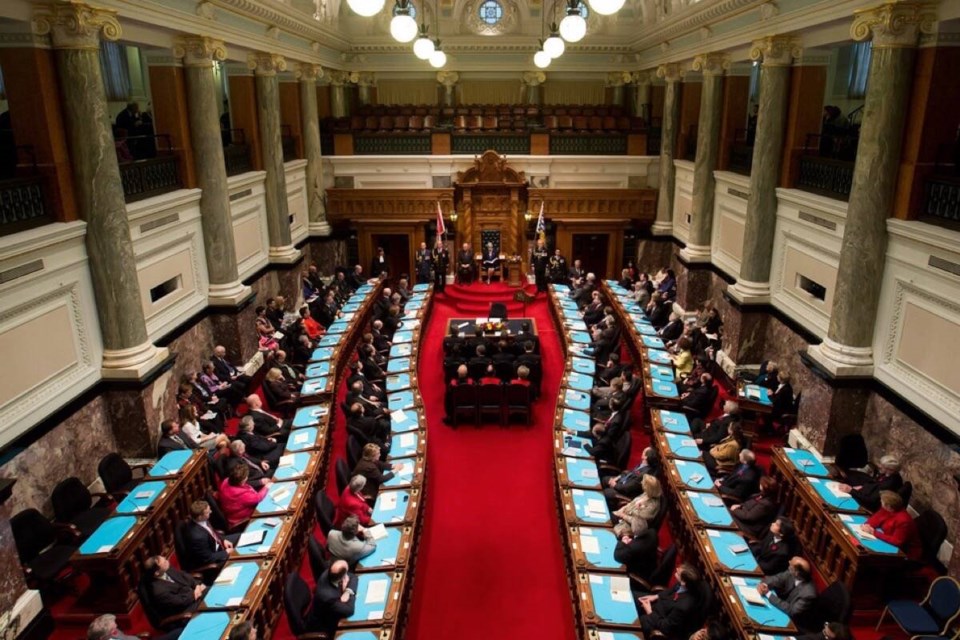A new BC Conservative government would repeal the Act that lays out the framework for relations between the province and First Nations, the Prince George-Valemount candidate told a debate audience Tuesday, Oct. 15.
DRIPA, the Declaration on the Rights of Indigenous Peoples Act, was passed into law in November 2019. Earlier in the campaign, Conservative Leader John Rustad laid out his plans to dismantle it.
Conservative candidate Rosalyn Bird, Green candidate Gwen Johansson and the NDP’s Clay Pountney were asked several questions during the forum at the CFIS studios. Among them: “First Nations have said they need access to resources. They need access to equitable, equitable financing. They also need to see the decision-making. How will you and your party contribute to not only closing the socio-economic gaps First Nations have between the rest of the population, but also reconciling Crown and aboriginal title?”
While both Johansson and Pountney – a former chief of the Lheidli T’enneh – said DRIPA is essential legislation, Bird took the opposite view.
“Our party has said that we will repeal that legislation, and it's not because we don't think reconciliation is important,” she said.
“Reconciliation is extremely important. Again, it goes back to relationships, but First Nations, communities and individuals, they need to be empowered, and we need to lift them up, and the way to do that is through economic stability and sustainable economic relations. However, if you have a piece of legislation that ends up creating more questions than answers, and it creates fear. It creates division. It isn't beneficial to our province. So if we have something like that, that when various groups read it and various groups understand it differently, that's a problem.”
Pountney said DRIPA is crucial as relationships between the province and First Nations move forward, particularly in land claims and resource development.
“A lot of work has already been done to get to where we're at,” he said. “We had the calls to action. We had 6,000 survivors tell their stories after, relive a lot of things, and to get this in BC and to get it looked at repealing it is … it's frustrating to say the least. Most First Nations are right against it.”
He noted that the founders of the Moose Hide Campaign, which is aimed at helping Indigenous boys and men avoid the cycle of gender-based violence, have asked Conservative Leader John Rustad to stop wearing their pin in response to his stance on repealing DRIPA.
“A lot of First Nations are really against repealing that piece, because right now, that work's already been being done. It's not about economic reconciliation that's happening," Pountney said. "Lheidli T’enneh has signed one of the biggest forestry agreements two years ago the province has seen. So a lot of that work is actually happening right now, moving forward, and we're moving forward together in a good way. And (the NDP) is the government that's been doing that work.”
Johansson, a former mayor of Hudson’s Hope, said it’s key to involve First Nations early in any new process.
“My experience with working with First Nations is that if they are included right at their very, very beginning, they're very to work with. And I think that when it's when they come into a project, and they're told that, you know, there's some record, there was some consultation done, and actually it wasn't done. So when they come in very, very early, then you can work out whatever the issues are,” she said.
“And it's when you come in late that you end up with the problems, and you end up with a court case, and it was that doesn't help anybody. So my suggestion is that we have to start very, very, very early with the consultation and work with them.”
The all-candidates forum's rules allowed a two-minute period after each question was answered for candidate to weigh in further.
Pountney noted that DRIPA was passed unanimously by the Legislature in 2019.
“At the time it came through, all parties agreed to it, and it's just time that we started to open the implementation. DRIPA has created certainty. Right now, previous to this, there's been a lot of lawsuits. A lot of taxpayer dollars went that way,” he said.
“And right now, the governments know working with First Nations is better than working against them. We've been in lengthy legal battles time and time again. (First Nations) win time and time again. And so the governments are now shifting and going, ‘you know what? It's a lot better working with people and bringing that certainty so we can bring investors to the North.’ And when you don't have that certainty, you have a lot of fighting. And nobody wants that. Nobody wants to go back to those times.”
Bird said she has faith in her party’s leader to maintain excellent relationships with First Nations even if DRIPA is repealed.
“John Rustad is actually the longest-sitting elected official to ever carry the portfolio of Indigenous or First Nations affairs and reconciliation. He sat in that job for four years. He signed 435 agreements with various communities and nations across this province. He is very, very well versed on how to create good working relationships with First Nations people,” she said.
“He wants them to be empowered. He wants them to have the ability to have the things that are important within their communities. So this isn't about not honoring the original piece of legislation, which is DRIPA, and it has caused a lot of confusion and that is what he is trying to reduce. And he wants to build relationships that that are going to be long lasting.”
CFIS hosts another all-candidates forum Wednesday, Oct. 16, 7-9 p.m. It will be aired live on 93.1 with the candidates running in Prince George-Mackenzie.



